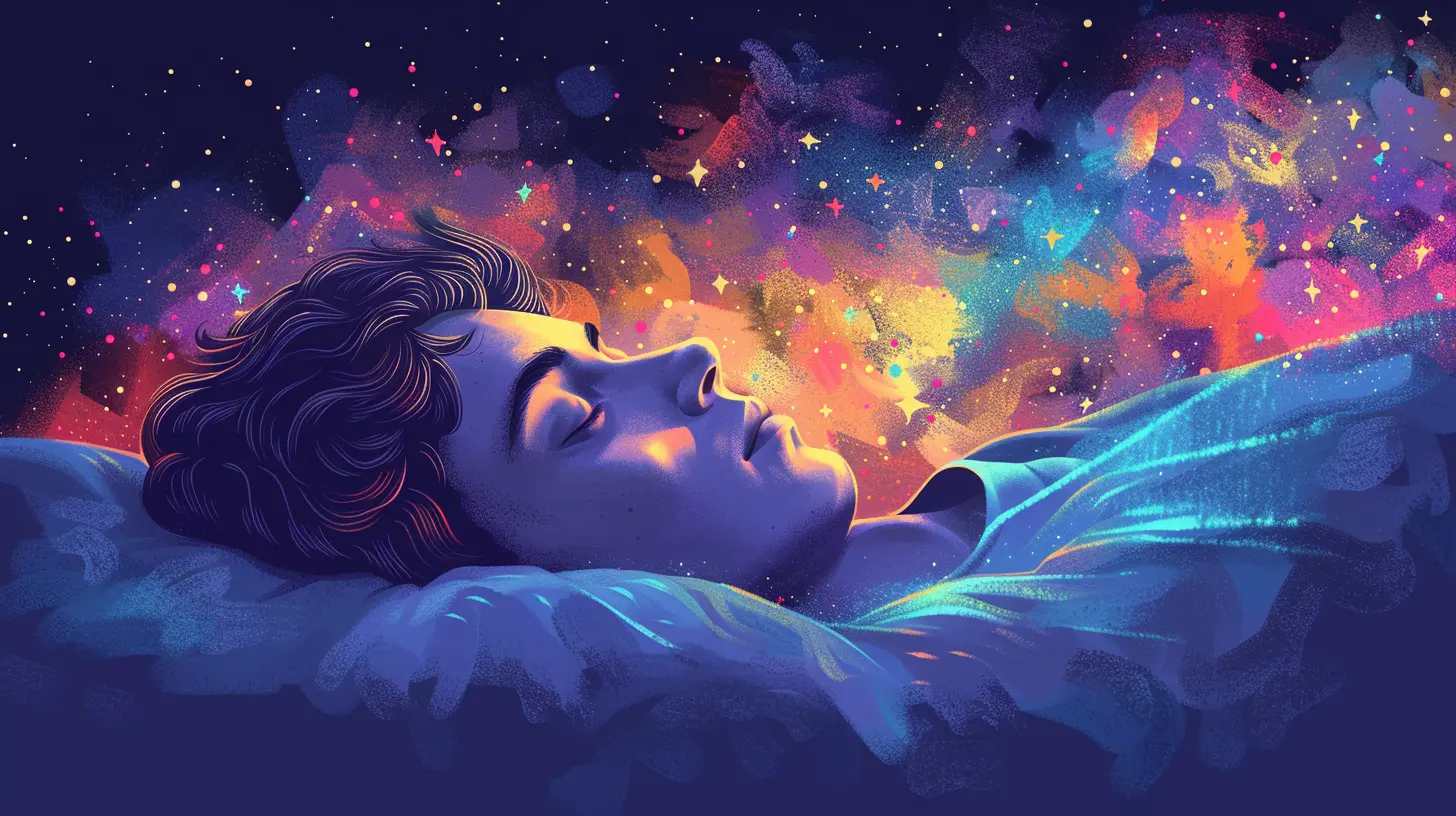The Impact of Sleep on Mental Health and How to Improve It
16 September 2025
Let’s be honest — sleep is one of those things we all know we need, but don’t always prioritize. Maybe you’ve stayed up too late binge-watching your favorite show, answering emails, or just scrolling endlessly through social media. It happens to the best of us. But the truth is, when sleep suffers, your mental health is usually the first to take a hit.
In this article, we’ll dive deep into the real connection between sleep and mental well-being, how lack of sleep messes with your mind, and — most importantly — practical ways to get your sleep (and sanity) back on track.
Why Sleep Is a Big Deal for Mental Health
You probably already know sleep is essential for physical health — immune support, cell repair, all that good stuff. But when it comes to your brain? Sleep is like a nightly tune-up for your mental engine.Think of your mind like a smartphone. If you don’t plug it in overnight, you’ll wake up to a drained battery. Same goes for your brain. Without enough sleep, your mental “battery” doesn’t charge fully, and that affects everything from your mood to your ability to think clearly.
What Happens in Your Brain While You Sleep?
Sleep isn't just rest — it's active maintenance. While you're dreaming away, your brain is busy:- Processing emotions: Dreaming helps your brain process emotional experiences and reduce next-day stress.
- Storing memories: You move short-term memories into long-term storage — kind of like saving your work.
- Detoxing: Your brain clears out waste, including proteins linked to conditions like Alzheimer’s.
So yeah, sleep isn't just a luxury. It's a foundational piece of mental wellness.
The Mental Health Toll of Poor Sleep
Skimping on sleep might not seem like a big deal at first, but over time, the consequences stack up. Chronic sleep deprivation throws your emotional regulation, cognitive functions, and mood into a tailspin.Increased Risk of Anxiety and Depression
One of the biggest red flags? Poor sleep is strongly linked to both anxiety and depression. Studies show that people who consistently get less than 6 hours a night are significantly more likely to develop these mental health conditions.It’s a two-way street too. Depression can make it harder to sleep, and bad sleep can worsen depression. It’s a vicious cycle.
Stress and Emotional Reactivity
Ever snapped at someone just because you were tired? That’s no coincidence. Sleep-deprived brains struggle to regulate emotions. The part of the brain responsible for rational thinking (the prefrontal cortex) hits the snooze button when you're sleep-starved, and the emotional part (the amygdala) kicks into overdrive.Basically, you become moodier, more irritable, and way more reactive to stress.
Trouble Thinking Clearly
Beyond mood swings, sleep loss messes with your actual thinking skills. Concentration drops. Decision-making becomes harder. Creativity? Forget about it.It’s like trying to run complex software on a glitchy computer. You might get through the day, but everything takes twice the effort.
How Much Sleep Do You Really Need?
You might think you’re functioning fine on five hours a night — maybe you've even convinced yourself you're one of those "short sleepers." (Spoiler alert: You're probably not.)Here’s a quick breakdown of recommended hours per age group:
- Teens (14-17): 8–10 hours
- Adults (18-64): 7–9 hours
- Older adults (65+): 7–8 hours
Quality matters just as much as quantity. Interrupted or restless sleep doesn’t give your body the deep rest it needs.
Signs Your Sleep Might Be Hurting Your Mental Health
Sometimes, you don’t even realize poor sleep is affecting you until things feel...off. Here are a few subtle (and not-so-subtle) signs your sleep might be taking a toll on your mental well-being:- Waking up tired, even after 8+ hours
- Feeling more anxious or easily overwhelmed
- Struggling to concentrate or stay focused
- Feeling unmotivated or emotionally numb
- Increased irritability or mood swings
If any of this rings a bell, it’s time to take a closer look at your sleep habits.
Simple Sleep Habits That Can Improve Mental Health
Okay, let’s get into the good stuff — how to actually sleep better and give your brain the rest it craves. You don’t need to overhaul your life. Sometimes, small changes have the biggest payoff.1. Stick to a Sleep Schedule (Even on Weekends)
Your body has a natural sleep-wake cycle — your circadian rhythm. When you go to bed and wake up at different times every day, it confuses your internal clock.Try to keep your bedtime and wake-up time consistent. Yes, even on weekends. Your future well-rested self will thank you.
2. Create a Wind-Down Routine
You can’t go from 100 to zero. Your brain needs signals that it’s time to transition into rest mode.Ideas for a chill bedtime routine:
- Read a book (not on your phone)
- Take a warm shower
- Listen to calming music or a sleep podcast
- Practice a few minutes of deep breathing or meditation
Basically, treat yourself like a sleepy toddler you’re trying to calm down. Soothing rituals = better sleep.
3. Ditch the Screens Before Bed
Blue light from phones, tablets, and laptops messes with your melatonin production — the hormone that tells your body it’s sleepy time.Aim to put screens away at least 30–60 minutes before you hit the pillow. If that sounds impossible, try blue light filters or even blue light–blocking glasses. But real talk — a screen break is still better.
4. Watch What You Eat (and Drink)
Your diet can totally affect your sleep:- Avoid caffeine after 2 PM — it hangs out in your system way longer than you think.
- Heavy meals, spicy food, or sugary snacks late at night? Bad news for your belly and sleep cycle.
- Alcohol might knock you out faster, but it wrecks your sleep quality.
Aim for a light, balanced dinner and hydrate earlier in the day to avoid bathroom runs at midnight.
5. Move Your Body During the Day
Ever notice how physical activity makes you sleep like a rock? Regular exercise boosts serotonin and helps regulate your sleep patterns — just don’t work out too close to bedtime or your adrenaline might work against you.Even a 20-minute walk or beginner yoga can make a difference.
6. Keep Your Bedroom a Sleep Sanctuary
Your sleeping space should be a chill zone. Try these tips:- Keep the room cool (between 60–67°F is ideal)
- Block out light with blackout curtains or an eye mask
- Use a white noise machine or fan if noise is an issue
- Invest in comfy bedding and pillows
Basically, if your bedroom feels as inviting as a luxury hotel suite, you're doing it right.
7. Manage Stress During the Day
Sometimes, bad sleep is just a symptom of something deeper — chronic stress, anxiety, or emotional overload.Try journaling, breathing exercises, therapy, or mindfulness throughout the day to process your thoughts — that way, you’re not bringing them all into bed with you.
When to Get Professional Help
Let’s be clear — it’s okay to need help. If you’ve tried building better sleep habits and still can’t get restful sleep, it might be time to talk to a doctor or mental health professional.You could be dealing with:
- Insomnia
- Sleep apnea
- Depression or anxiety that disrupts sleep
- Restless leg syndrome
- PTSD-related sleep disturbances
There’s no shame in asking for support. In fact, it’s one of the strongest things you can do for your mental health.
Final Thoughts: Sleep Isn’t Lazy — It’s Essential
In today’s go-go-go culture, sleep can sometimes feel like a luxury or even a sign of laziness. But let’s flip that narrative. Prioritizing sleep is one of the smartest, kindest, and most effective things you can do for your mental and emotional well-being.So, tonight? Close that laptop a little earlier. Put your phone away. Get cozy. And give your brain the beauty sleep it deserves.
Sleep well, feel well — it's really that simple.
all images in this post were generated using AI tools
Category:
Self HelpAuthor:

Alexandra Butler
Discussion
rate this article
1 comments
Victor Elliott
Adequate sleep is crucial for maintaining mental health. Understanding its effects can help individuals implement strategies to improve sleep quality, ultimately enhancing emotional resilience and overall well-being.
September 16, 2025 at 4:37 AM

Alexandra Butler
Thank you for highlighting the importance of sleep! Understanding its effects is indeed vital for mental health and resilience. Your insight on implementing strategies for better sleep quality is essential for overall well-being.


